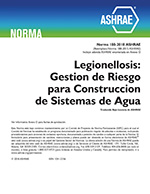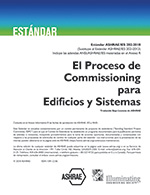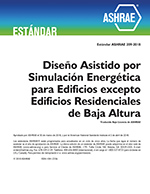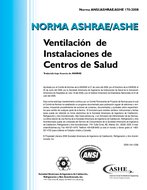Description
The enormous impact of the computer on the entire HVAC field today is beyond debate. The pocket electronic calculator has replaced the pocket slide rule, as the printing desk-top model with multiple memory registers (often programmable) has replaced the full-size rule, the ten-key adding machine, and the scratch pad. Manufacturers’ catalogs and equipment selections are universally computer generated, and as we move into the era where even the nontechnical person is beginning to accept the fact of an inevitable energy problem, no energy analysis worth its salt is performed other than with a computer.
The mechanical engineer who left college in the forties and fifties, or even earlier, learned his trade with a psychrometric chart, an “E-20” load calculation form, and a “Ductulator”. To him, a calculator was a noisy jumping thing “those Civils used who didn’t need a tape to check their work”, and the computer age opened with both promise and problem. He recognized the undesirable aspects of the one-shot “hope-I-guessed-right” load calculation and nomograph duct design, while welcoming the prospect of being able simultaneously to do a many times more thorough engineering job, many times more rapidly, with a drastic reduction in the arithmetic busy-work. As a jnecessarily conservative practioner however, he was at the same time very reluctant to surrender any of his professional jUdgment to that “black box”. It wasn’t the “box” itself that caused all the concern, for he was surrounded with inumerable “boxes” already that, once understood in general terms and with performance verified by simpler means, were accepted at face value and relied upon as dependable tools of the trade (adding machines, manufacturers’ catalogs, instruments of all kinds, and even the ASHRAE GUIDE).
Today and for the foreseeable future there are no publications of any form with more international respect and use in the HVAC field than the ASHRAE HANDBOOK series, especially the HANDBOOK OF FUNDAMENTALS, or “THE GUIDE!’. As superior and indispensible as is “THE GUIDE” ,however, it is’ still to most users very much of a “black box”. It explains systems, procedures, and basic fundamentals in great detail, and makes numerous references to appropriate works of the intellectual giants of the industry. But as a working tool, to the day-to-day engineer in the performance of his regular tasks, it’s as much of a “black boxll as the biggest, buzzing, blinking computer ever invented.
Not one-tenth of one percent of all engineers who ever used the GUIDE have ever personally gone out and derived glass shading coefficient, a friction factor for a duct elbow or pipe fitting, or a “U” factor in the field with appropriate instrumentation. They all accept these data from the GUIDE as holy gospel, for they know that the information was derived by competent engineers, who knew what to do, had the proper instruments, and who tested and checked their results carefully. Thus the uncertain part of this particular “black box” is eliminated, the procedures exposed, the performance proved, all credentials certified, and the mystery removed to any’ extent required by the.individual user.
Citation: Symposium, ASHRAE Transactions, Volume 82, Part 2, Seattle, WA
Product Details
- Published:
- 1976
- Number of Pages:
- 21
- File Size:
- 1 file , 1.4 MB
- Product Code(s):
- D-SE-76-03-4




